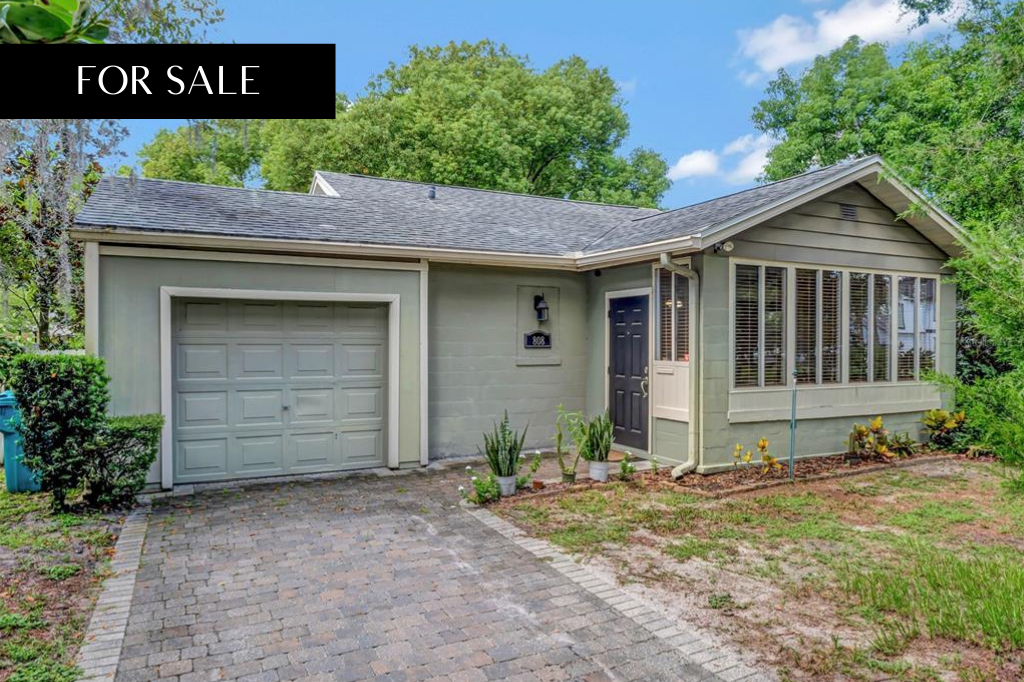Orlando, Florida Real Estate Market: A Comprehensive 2024 Mid-Year Update
As we journey through 2024, the Orlando, Florida real estate market continues to captivate both local and international investors, first-time homebuyers, and retirees alike. Known for its world-renowned theme parks, booming tourism industry, and vibrant cultural scene, Orlando has emerged as a highly desirable location for real estate investments. In this comprehensive update, we will explore the current trends, factors driving the market, and future outlook to provide a clear understanding of Orlando’s real estate dynamics. Whether you are an investor, potential buyer, or simply curious about the market, this detailed analysis will give you the insights you need.
Current Market Trends in Orlando
Home Prices
Orlando’s housing market has been experiencing a steady rise in home prices. According to the Orlando Regional Realtor Association, the median home price in Orlando reached $395,000 as of July 2024, marking an increase of 6.2% compared to the previous year. This growth can be attributed to a combination of factors, including strong demand, limited inventory, and a growing local economy.
Strong Rental Market
Orlando’s rental market continues to thrive, fueled by the influx of new residents and a robust tourism industry. Rental prices have seen a noticeable uptick, with average rents for one-bedroom apartments increasing by 5% over the past year. The demand for rental properties remains high, attracting investors looking to capitalize on rental income. Websites like RentCafe provide detailed rental reports that highlight the rising trends in the area.
New Construction and Development Projects
In response to the housing shortage, Orlando has witnessed a surge in new construction and development projects. Several large-scale residential communities and commercial developments are underway, aiming to accommodate the growing population. Notable projects such as the Lake Nona Town Center and Creative Village are reshaping the landscape and adding to the city’s appeal. Reports from the Orlando Economic Partnership provide insights into these transformative projects.
Factors Influencing the Orlando Real Estate Market
Population Growth and Migration Patterns
Orlando is one of the fastest-growing cities in Florida, attracting newcomers from various regions, including the Northeast and Midwest. According to the U.S. Census Bureau, Orlando’s population grew by 2.7% over the past year, driven by factors such as job opportunities, favorable climate, and affordable living compared to other major cities. This population surge has fueled housing demand and contributed to rising property values.
Tourism and Economic Resilience
Orlando’s economy is heavily reliant on tourism, with major attractions such as Walt Disney World, Universal Studios, and SeaWorld drawing millions of visitors annually. Despite the challenges posed by the COVID-19 pandemic, the tourism industry has rebounded strongly, boosting the local economy. The Orlando International Airport’s recent expansion and increased flight connectivity further support tourism growth. A detailed analysis of the economic impact can be found on Visit Orlando.
Interest Rates and Mortgage Trends
Interest rates have played a pivotal role in shaping the Orlando real estate market. Over the past year, we have witnessed fluctuations in mortgage rates, impacting buyers’ purchasing power. As of mid-2024, the average 30-year fixed mortgage rate stands at 6.9%, slightly higher than last year’s rates. The Federal Reserve’s monetary policy decisions will continue to influence these rates and, consequently, the market dynamics.
Remote Work and Lifestyle Preferences
The COVID-19 pandemic has accelerated the trend of remote work, allowing individuals to choose their living locations more freely. Orlando’s attractive lifestyle, with its warm climate and recreational opportunities, has made it a prime destination for remote workers seeking a better work-life balance. This shift in lifestyle preferences has contributed to increased demand for homes in suburban areas, as highlighted by Realtor.com.
Future Outlook for the Orlando Real Estate Market
Continued Price Appreciation
Looking ahead, Orlando’s real estate market is expected to continue its upward trajectory. While some experts predict a gradual stabilization of price growth, the demand-supply imbalance and economic resilience are likely to keep prices elevated. The National Association of Realtors forecasts a moderate increase in home prices, with Orlando projected to remain one of the top-performing markets in Florida.
Emergence of New Submarkets
As the urban core becomes more competitive, new submarkets are emerging on the outskirts of Orlando. Areas like Winter Garden, Lake Nona, and Clermont are gaining popularity among buyers seeking more affordable options while still enjoying proximity to the city’s amenities. These submarkets are witnessing significant development and investment, offering a promising landscape for future growth. Curbed Orlando provides detailed insights into these emerging areas.
Sustainability and Green Building Initiatives
Sustainability and green building practices are becoming increasingly important in Orlando’s real estate landscape. Developers are focusing on energy-efficient designs and environmentally friendly construction to meet the demands of environmentally conscious buyers. The city government is also promoting sustainability initiatives, encouraging the adoption of green technologies. The U.S. Green Building Council highlights Orlando’s efforts towards sustainable urban development.
Investment Opportunities and Risks
Orlando’s real estate market continues to attract investors looking for lucrative opportunities. The city’s strong rental market, coupled with potential for long-term appreciation, makes it an attractive investment destination. However, investors must also be mindful of potential risks, such as changes in interest rates, regulatory policies, and economic fluctuations. Conducting thorough research and staying informed about market trends is essential for making sound investment decisions. Investopedia offers valuable guidance for real estate investors.
Conclusion
The Orlando, Florida real estate market is experiencing a dynamic phase, characterized by rising home prices, limited inventory, and strong demand. Population growth, economic resilience, and changing lifestyle preferences are driving these trends. As the market continues to evolve, understanding the influencing factors and staying informed about future developments is crucial for buyers, investors, and industry professionals.
In summary, Orlando’s real estate market in 2024 presents a blend of opportunities and challenges. Whether you’re considering buying a home, investing in rental properties, or simply observing the market, staying abreast of the latest trends and expert insights is essential. With its vibrant economy, attractive lifestyle, and promising outlook, Orlando remains a city to watch in the ever-changing real estate landscape.
Work With Us
The Tate Advisory Group is ready and willing to assist you with all of your real estate needs. Contact us today to get started with your home buying or selling process!
Tate Advisory Group
![]()
CHASE.TATE@COMPASS.COM
![]()
PHONE NUMBER
(407) 476-8855
![]()
ADDRESS
851 W MORSE BOULEVARD WINTER PARK, FL 32789

The Tate Advisory Group is a team of real estate agents affiliated with Compass. Compass Florida, LLC d/b/a Compass is a licensed real estate broker and abides by equal housing opportunity laws. All material presented herein is intended for informational purposes only. Information is compiled from sources deemed reliable but is subject to errors, omissions, changes in price, condition, sale, or withdrawal without notice. No statement is made as to accuracy of any description. All measurements and square footages are approximate. This is not intended to solicit propertyalready listed. Nothing herein shall be construed as legal, accounting or other professional advice outside the realm of real estate brokerage.
![]()


